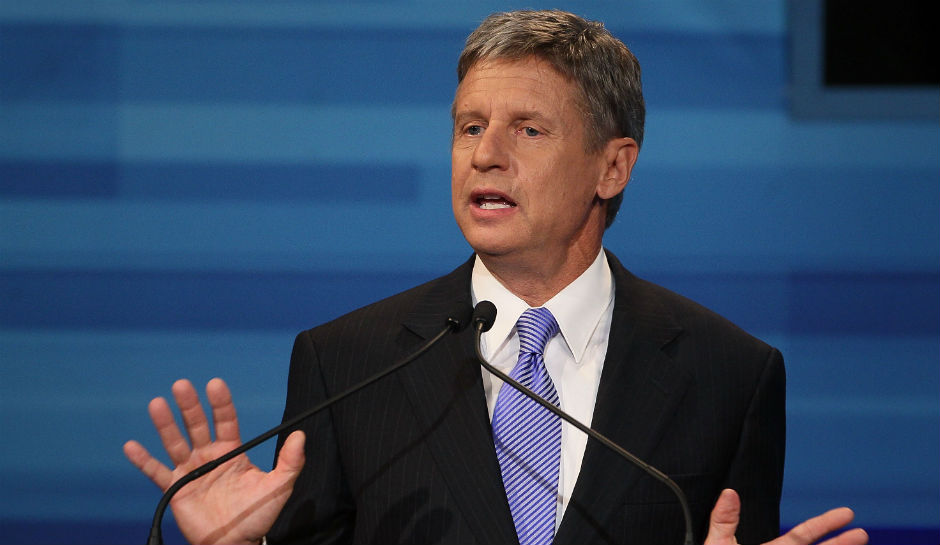It barely caused a ripple on the national scene, but Gary Johnson, former governor of New Mexico, captured the Libertarian party’s nomination for president back in May. Since the announcement, Johnson has mostly been a sideshow to the main event between the Republican presidential candidate, billionaire Donald Trump, and his Democratic challenger, former Secretary of State and New York Senator Hillary Clinton.
But Johnson’s radical tax proposals and economic policies could garner more attention in the coming months, especially with the part of the public fed up with the status quo. In fact, at the time when most third party candidates have completely faded into the background, Johnson hasn’t lost any ground and could actually be gaining.
The centerpiece of Johnson’s tax plan is the abolition of federal income and corporate income taxes, along with the IRS. Johnson would replace those tax systems with a single consumption tax, the Fair Tax, which is currently being debated in Congress. Essentially, the Fair Tax would result in a 23 percent tax being imposed on the purchase of new goods and services.
That’s it. No income tax on individuals. No capital gains tax on investors. No corporate income tax on businesses. No estate tax on heirs. No national sales tax or value-added tax (VAT) either. Plain and simple, you only pay the single 23 percent consumption tax when you make purchases. Otherwise, you’re tax-free.
Because such a tax is often considered to be “regressive,” meaning it hits everyone from clerks to business moguls so it’s likely to shift a greater tax burden to the lower and middle classes, the Fair Tax scheme includes a “prebate,” With this prebate, each household could consume amounts tax-free up to the poverty level, theoretically ensuring that the lowest economic strata would not be unduly harmed.
Supporters of the Fair Tax argue that eliminating all the special preferences afforded to certain individuals and entities in the tax code will remove the economic distortions affecting decision-making. The premise is that the overhaul will result in a better allocation of resources and faster growth.
But the jury is still out. In fact, some economic experts believe that a consumption tax will take a much larger toll on poorer Americans, even with the prebate.
Johnson has previously acknowledged that the plan isn’t foolproof, but argues that a zero corporate tax rate would, at the very least, stimulate jobs, improving economic growth in leaps and bounds. “If with a zero corporate tax rate this country doesn’t create tens of millions of jobs, for no other reason, then nothing’s going to create tens of millions of jobs,” he said. He also added a warning to special interest groups, “If you eliminate corporate tax, I think you issue pink slips to 80% of Washington lobbyists.”
Could the federal government survive without the current revenue stream being generated by individual and corporate taxes? Johnson is betting that the American public will agree with him that it can.
Thanks for reading CPA Practice Advisor!
Subscribe Already registered? Log In
Need more information? Read the FAQs
Tags: Accounting




